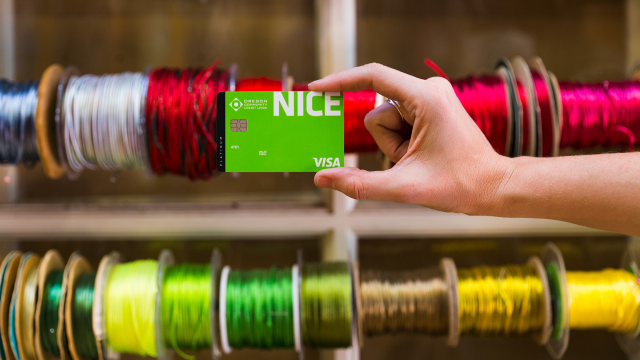When is it better to pay with a credit card?
Who doesn’t love auto-pay? You set it, forget it, and move on with your life knowing your bills will get paid on time.
But before you sit back and let auto-pay handle it, take a moment to think about which card you want to use. Many of us automatically reach for our debit card for recurring payments—but there are benefits to using your credit card instead.
But what if the person at the other end decides to steal your card number? Or what if a third party—such as a hacker—intercepts your data?
If that happens, you might be much safer if you paid with a credit card. Here’s why.
Credit cards may have more fraud protection.
Both credit and debit cards are backed by federal laws that protect your rights in case someone steals your identity. But they each fall under different laws with different levels of protection.
Credit card transactions are covered by the Fair Credit Billing Act, which limits your fraud liability to just $50. That means if someone steals your credit card info, the most you’ll lose is just $50. And if you report your card missing or stolen before any fraudulent charges are made, you won’t have to pay anything at all.
When you use your debit card you’re protected by the Electronic Funds Transfer Act. Your liability typically depends on how quickly you report the theft. This law gives you 60 days to report your stolen debit card. After that, you could lose all the money that was taken from your account. Generally, the EFT Act allows for:
- Before any fraudulent transactions are made: $0
- Within two days: up to $50
- Within 60 days: up to $500
- After 60 days: unlimited
OCCU follows friendlier guidelines for debit card fraud, but if your debit card isn’t with us, it might be wiser to use your credit card for recurring transactions; the most you’ll be risking is $50.
Putting your money on the line.
When someone makes an unauthorized purchase with your debit card, the money comes straight out of your account.
“If a crook uses your debit card, not only can they drain your bank account, but it can take up to two weeks for the bank to investigate the fraud and reimburse your account,” according to CNN.
A stolen credit card, on the other hand, won’t affect your finances right away. Since a credit card borrows money from the bank rather than drawing from your checking account, you haven’t lost any money. Once you report the fraud, you get a credit for the stolen funds—and your bank account remains unaffected.
“The real difference between a debit card and a credit card when it comes to fraud is in how you get your money back,” as noted on NerdWallet.
Our VISA cards make recurring payments even easier.
Whether you choose credit or debit, using your OCCU card for recurring payments is more convenient than ever.
Whenever you get a new credit or debit card (such as when your old one expires) you’ve typically had to log into all of your recurring accounts to update your payment info. But with VISA Account Updater, we’re able to work with many of your monthly card-on-file merchants, such as Netflix, to keep your card info up to date. That means less hassle for you—and no disruption in services.
In today’s online service economy, monthly recurring transactions are becoming increasingly common. Make sure you’re using the card that provides you the most protection against fraud.


